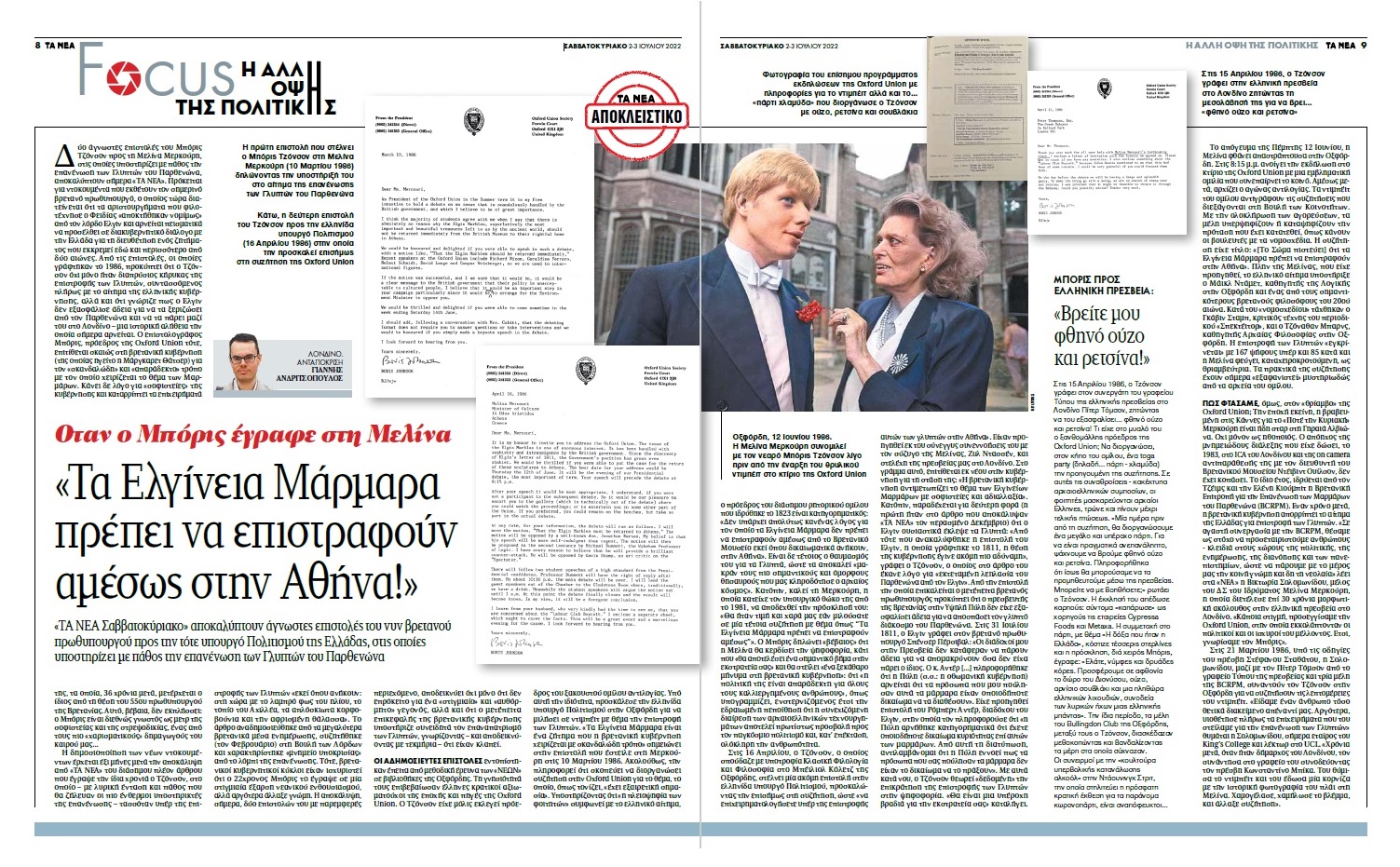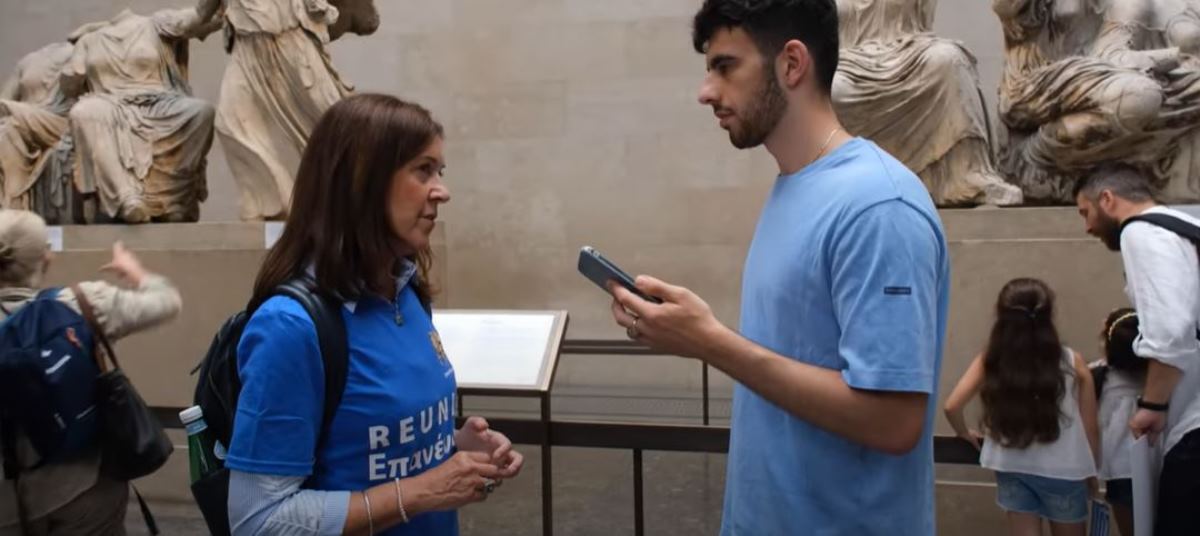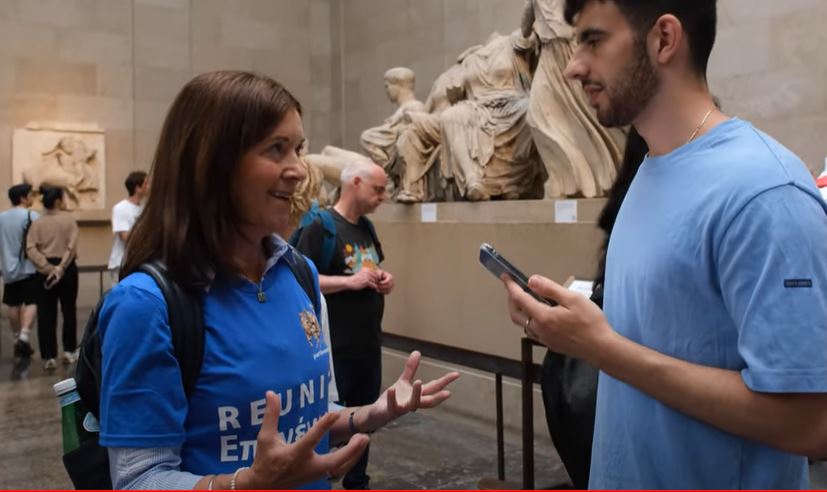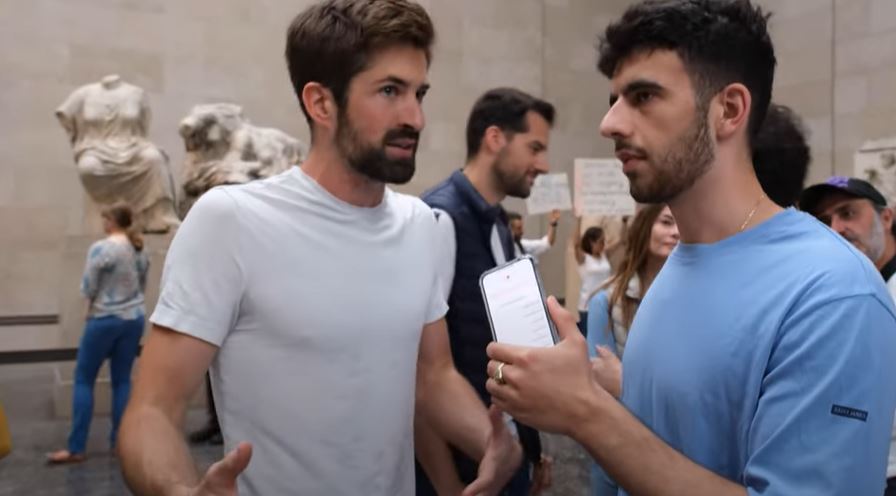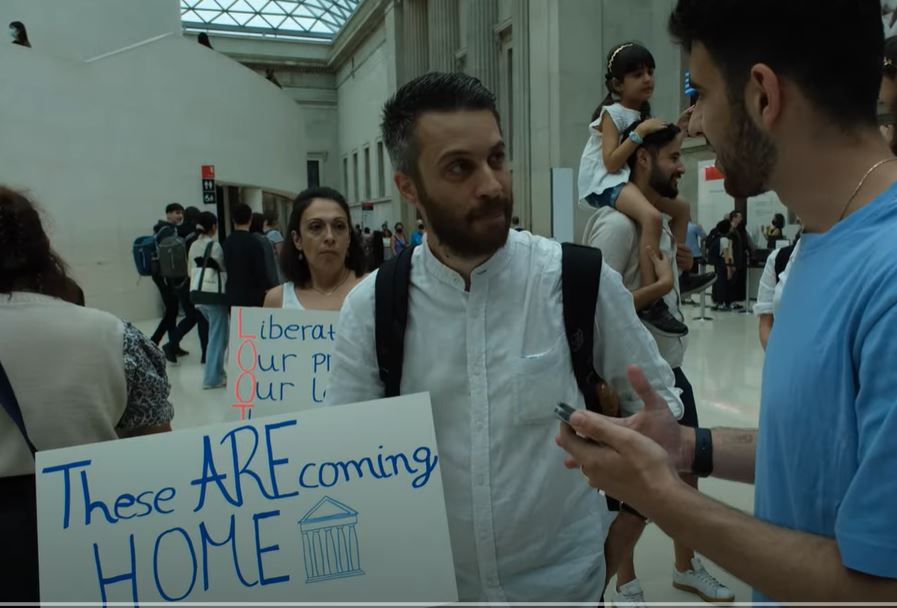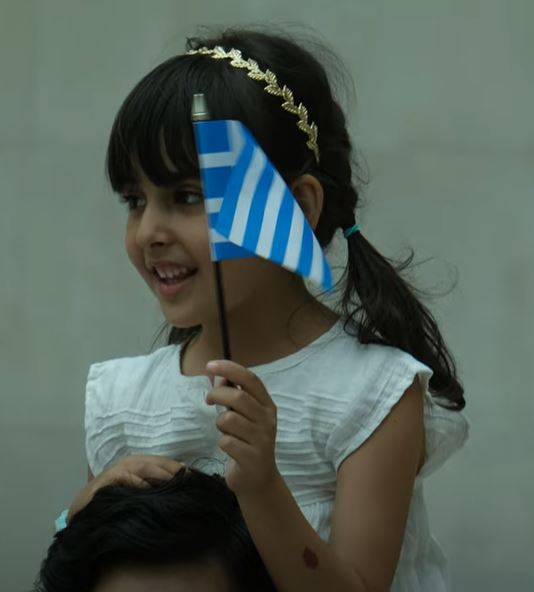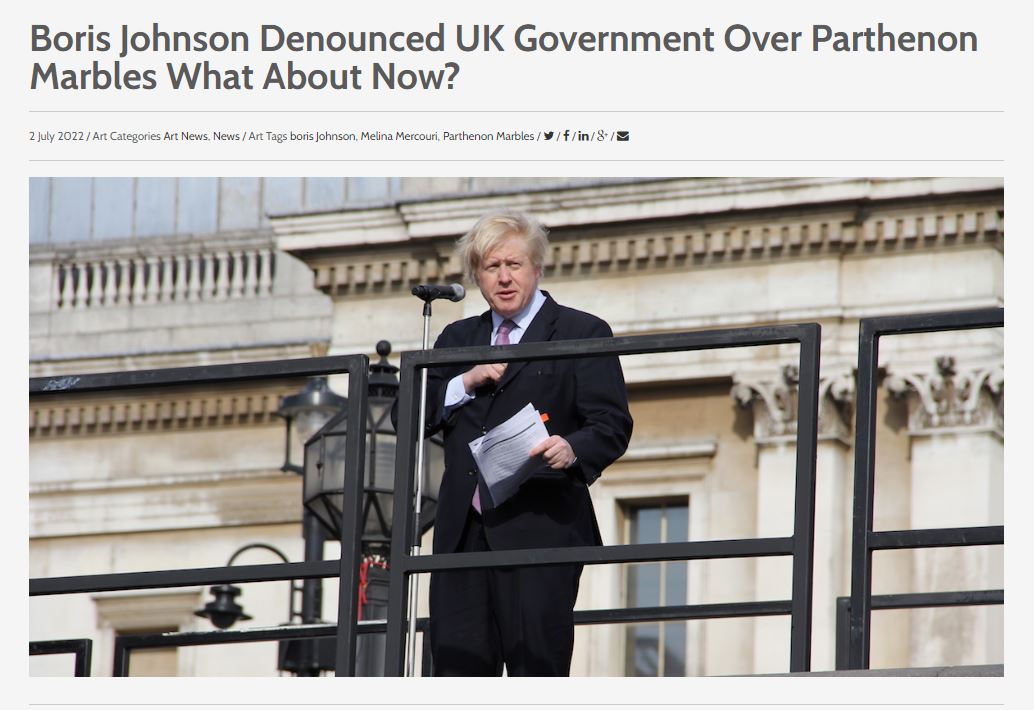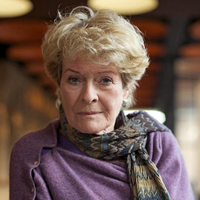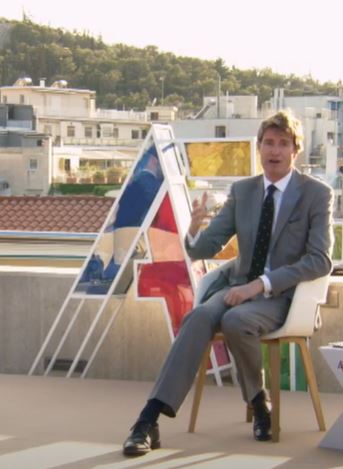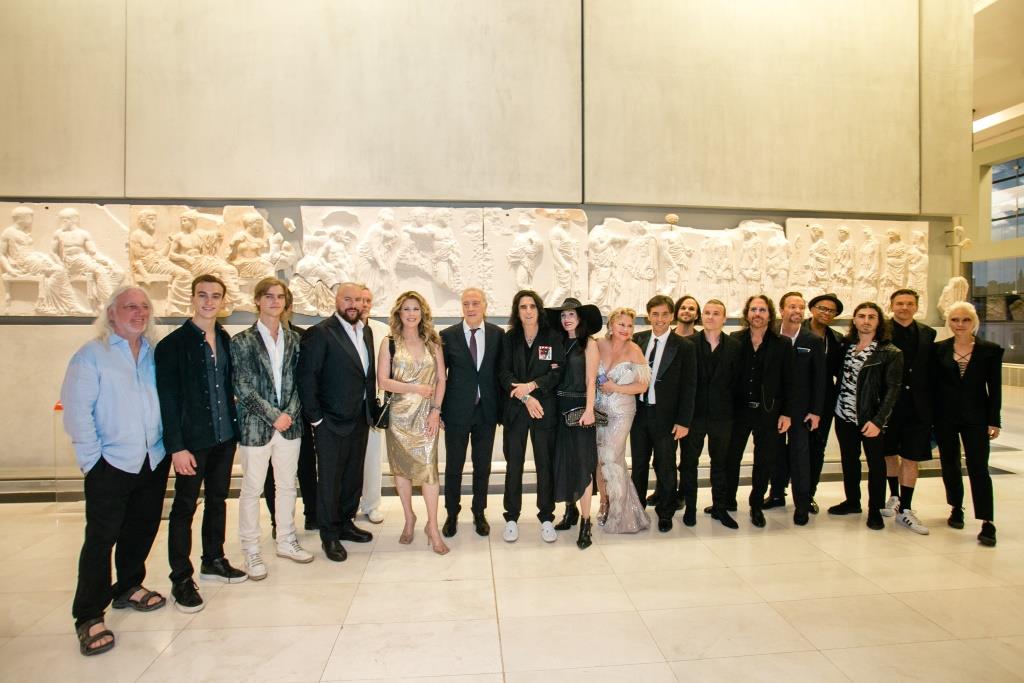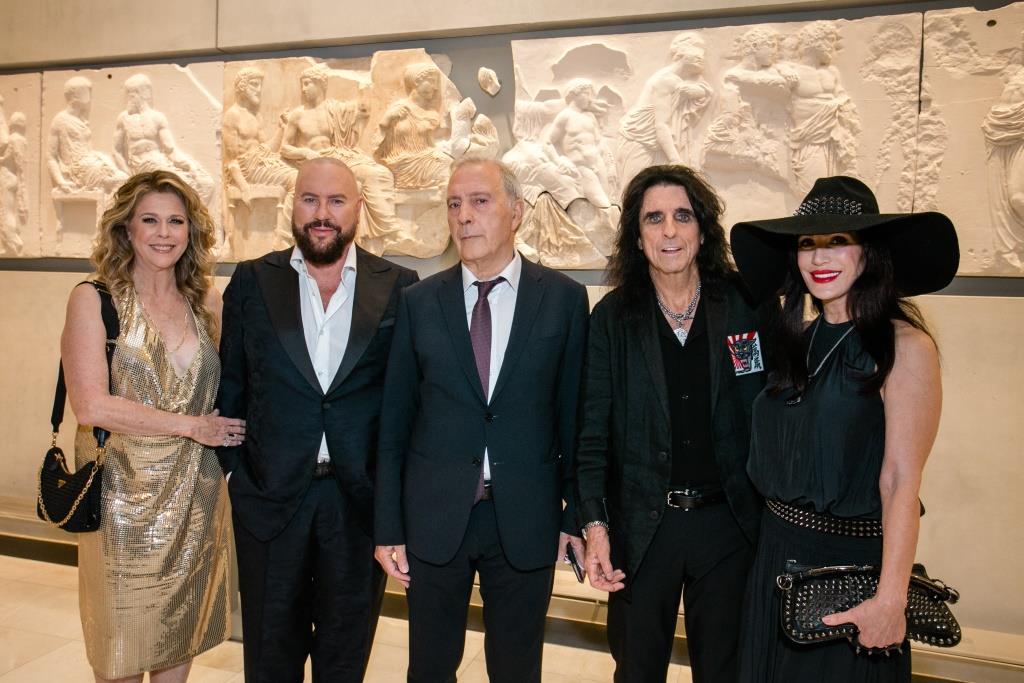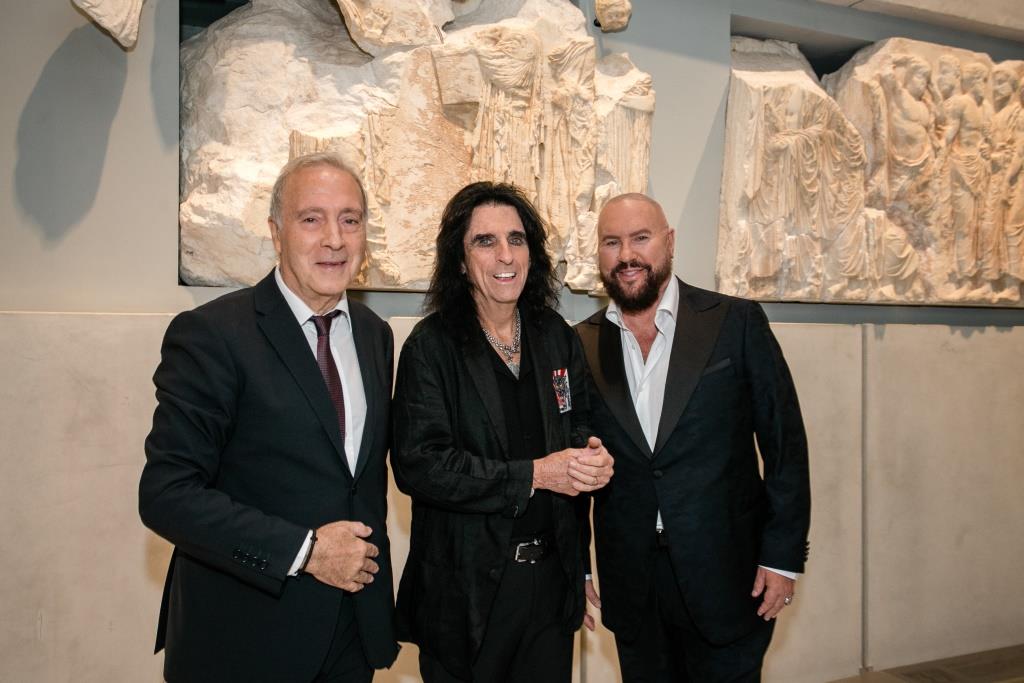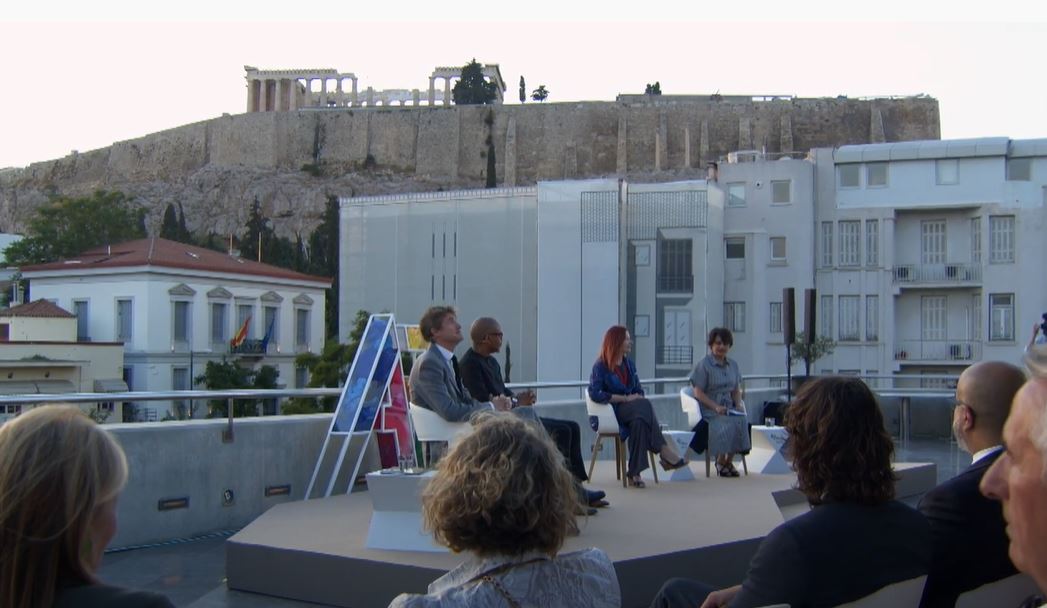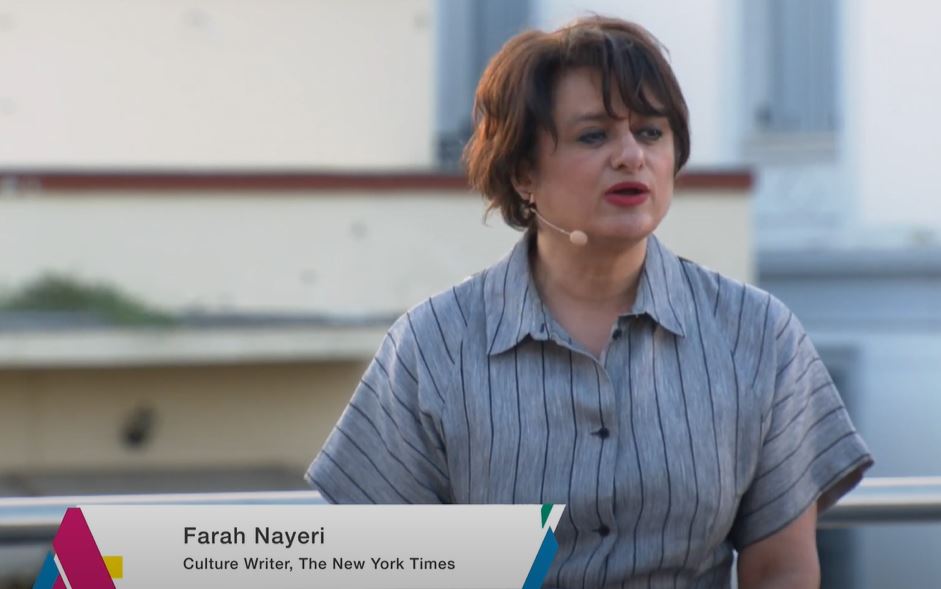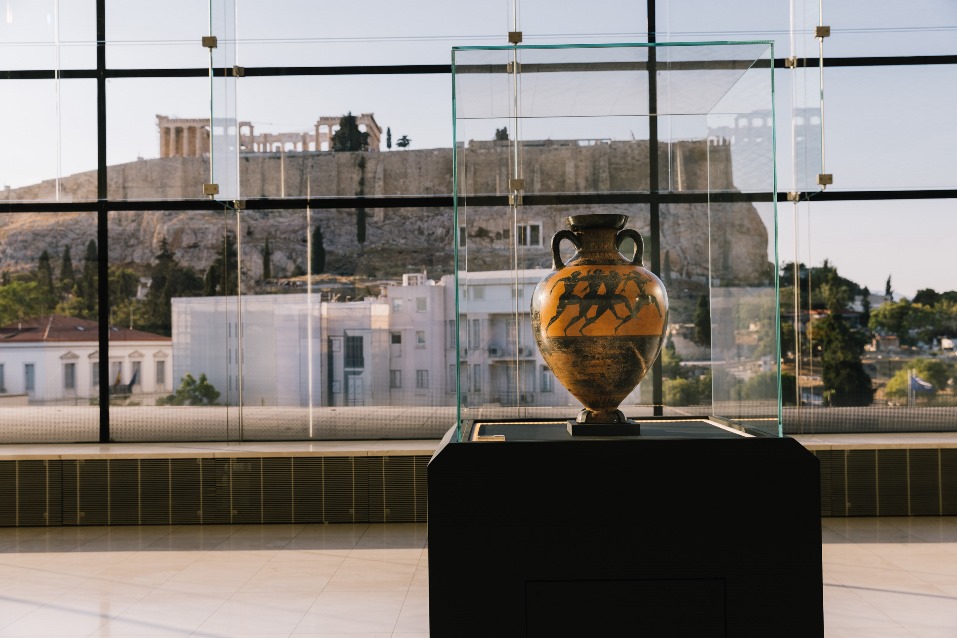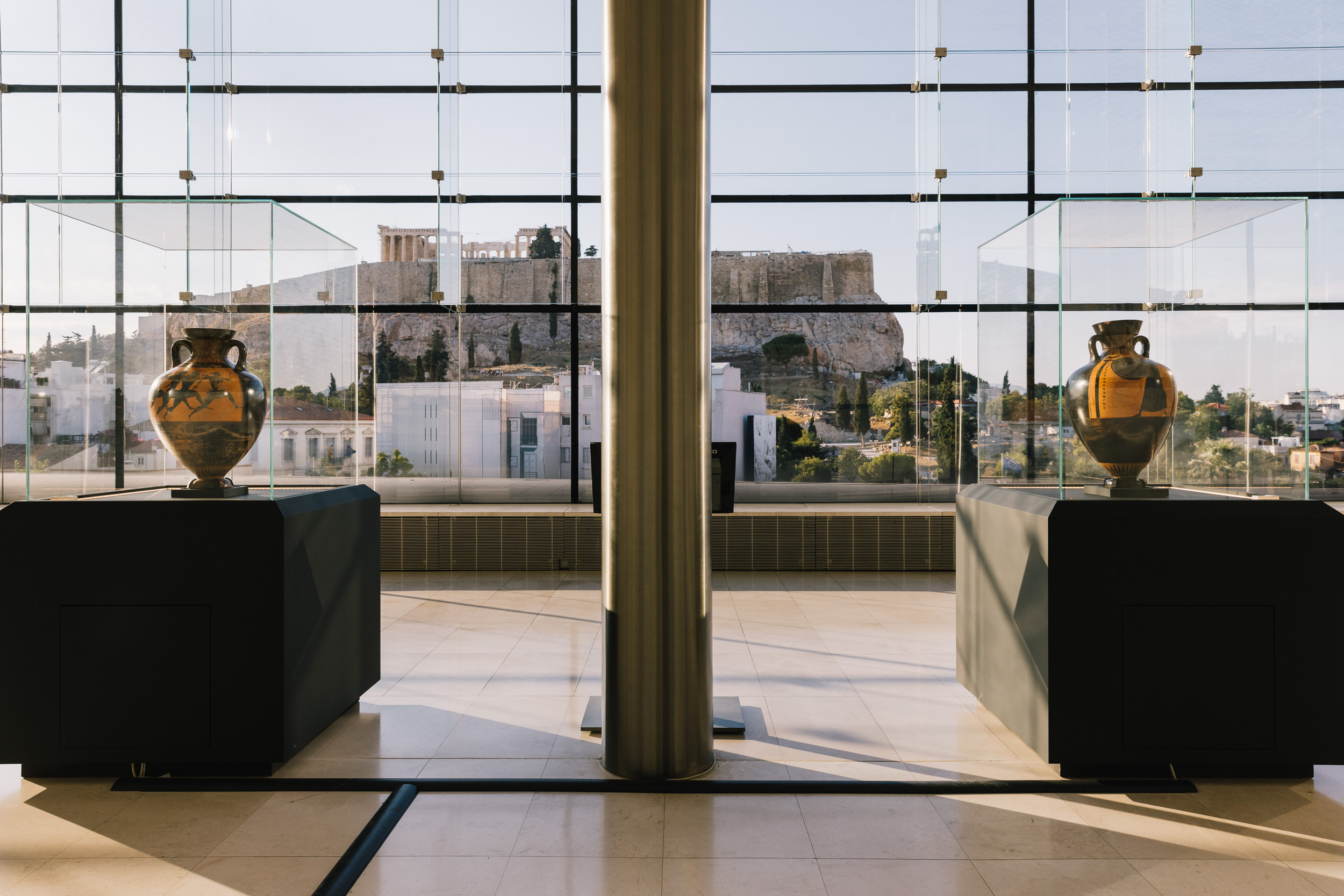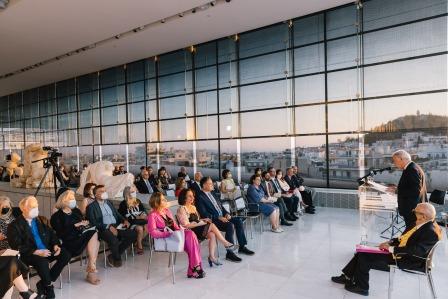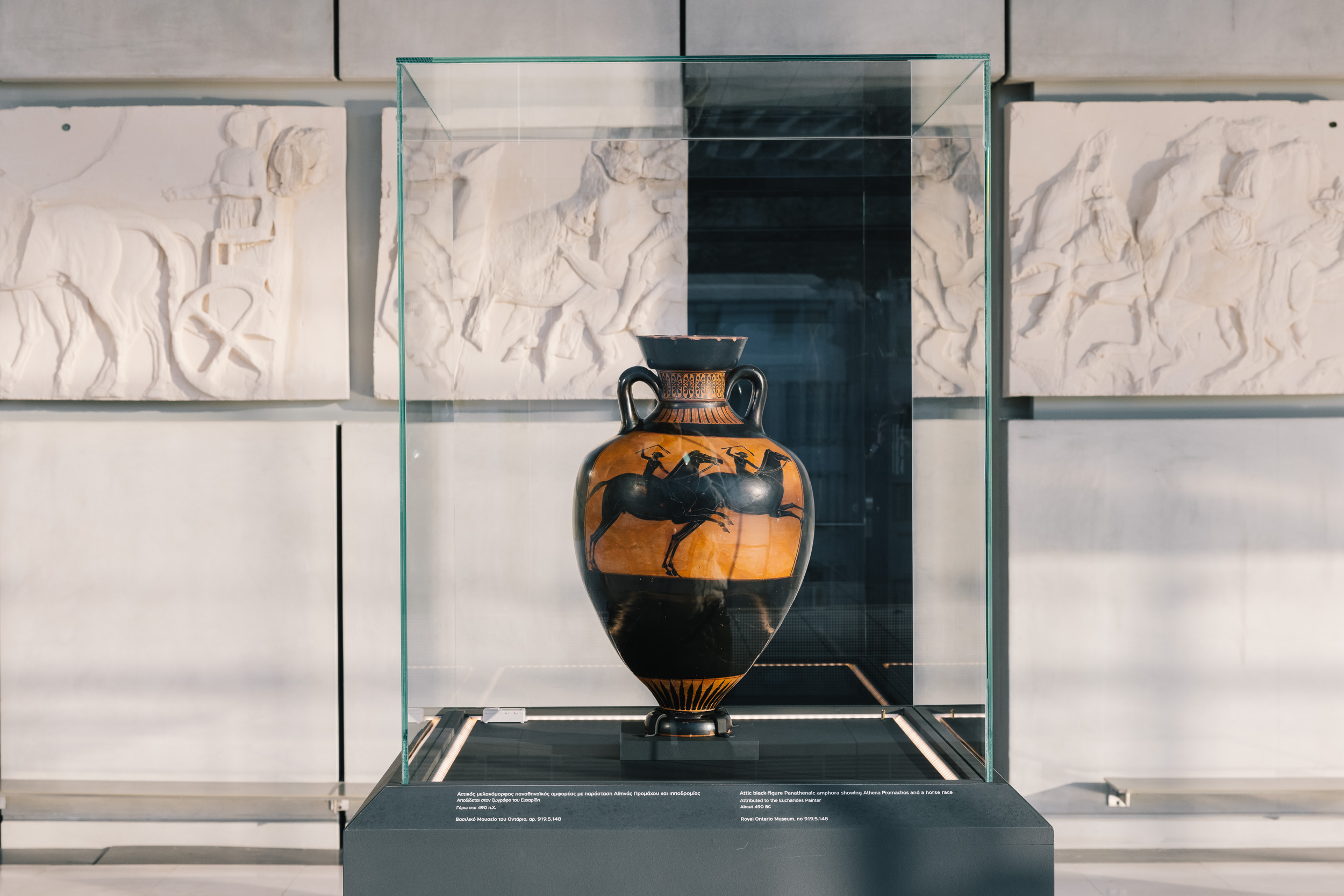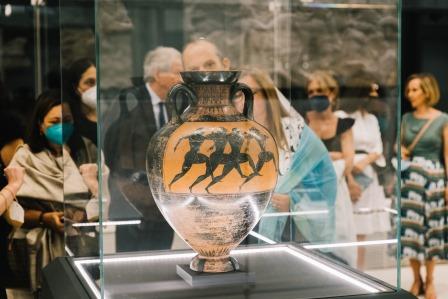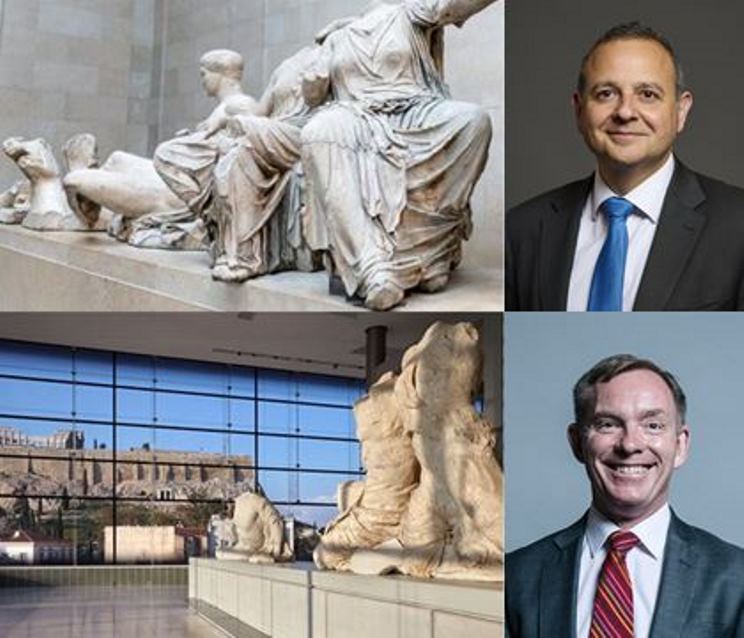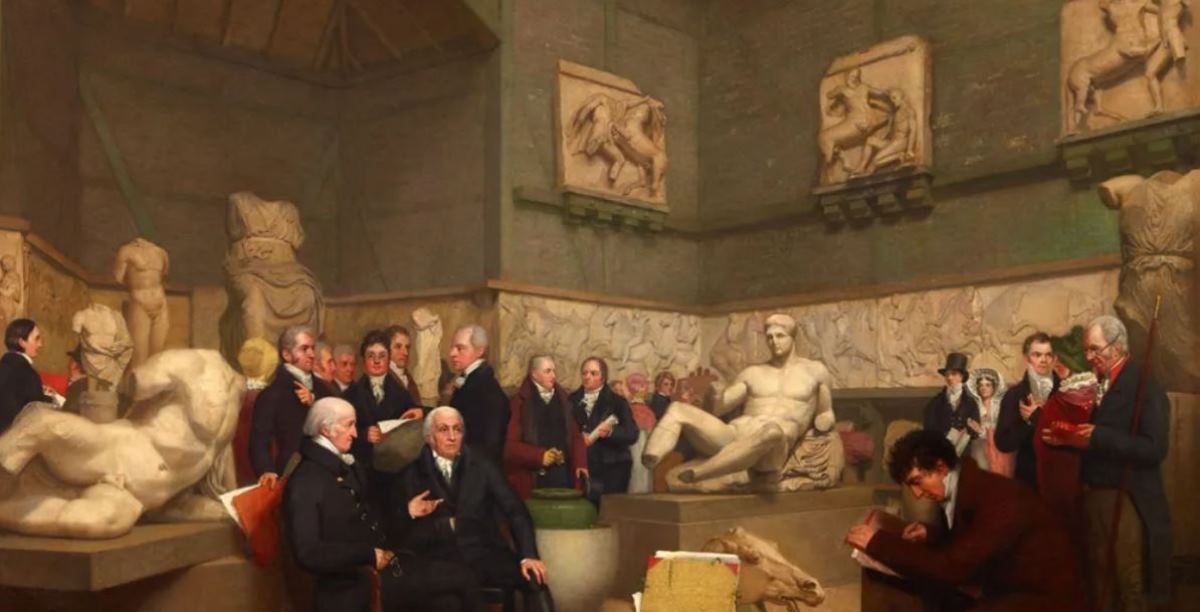Boris Johnson was once such a fervent supporter of the Parthenon Marbles being returned to Athens that he wrote to the Greek culture minister to denounce the British government for not giving back the antiquities.
Greek daily newspaper Ta Nea brought to light today previously unseen and unpublished letters, written in 1986, when Johnson was an undergraduate at Oxford University and Oxford Union president.
In the notes, the future British Prime Minister argued passionately for the ancient sculptures’ “immediate” repatriation, accusing the British government of “sophistry and intransigence”.
Johnson, then 21, went as far as claiming that the British government’s policy on the Parthenon Marbles was “unacceptable to cultured people,” and lamented the “scandalous” way it was handling the issue.
He wrote two letters to the then Greek minister for culture, late actor Melina Mercouri, in which he sided unreservedly with the Greek government’s campaign for the relics to be reunited.
He also cited a letter which proves that Lord Elgin removed the sculptures from the Parthenon in the early 19th century without securing legal permission to do so, arguing that its revelation had made the British government’s position “even shakier.”
Despite his enthusiasm for the Marbles’ return as a student, Johnson has refused to countenance such a move during his time as Prime Minister, sticking to the same position as the British government he criticised so heavily in 1986. Last November, Johnson rebuffed a direct request by Greek Prime Minister Kyriakos Mitsotakis for the Marbles to be repatriated.
In an exclusive interview with Ta Nea published in March 2021, the British premier claimed that the Parthenon Sculptures “were legally acquired by Lord Elgin under the appropriate laws of the time.”
This claim contradicts Johnson’s statement in 1986 that “the Turkish authorities denied ‘that the persons who had sold those marbles to [Elgin] had any right to dispose of them’.” Johnson accused Lord Elgin of “wholesale pillage” of the Parthenon, arguing that the Scottish peer exploited the “near anarchy” of the Ottoman Empire to remove the carvings.
The letters were found in an Oxford library. Their authenticity has been confirmed by an Oxford source and someone who served as a Greek state official at the time.
Their unearthing comes six months after Ta Nea found a forgotten article written by Johnson in April 1986, in which he urged the British government to return the artefacts to Greece, arguing that they had been unlawfully removed from the ancient temple in Athens.
British government sources tried to downplay the extent of Johnson’s U-turn, arguing that the 21-year-old classics student wrote the now-famous article in a momentary outburst of youthful enthusiasm, but he later changed his mind.
However, the revelation of two letters with similar content indicates that this was not a "momentary" event; the future head of the British government seemed to be devoted to the repatriation cause, knowing - and providing evidence to support it - that the sculptures were removed from the Parthenon without permission.
Athens has campaigned to have the 2,500-year-old artefacts returned from the British Museum since they were removed by Lord Elgin when he was Britain’s ambassador to the Sublime Porte. At the time, Greece was under Ottoman rule.
Johnson invited Mercouri, who became culture minister after an illustrious acting career, to speak in a debate at the Oxford Union on 12 June 1986, entitled: “[This house believes] that the Elgin Marbles Must be Returned to Athens.” He said it would be “a marvellous evening for the cause”. The chamber voted 167 to 85 in favour of the Marbles’ restitution.
In his first letter, dated March 10, 1986, the future Prime Minister and Conservative leader informed Mercouri that “it is my firm intention to hold a debate on an issue that is scandalously handled by the British government, and which I believe to be of great importance.”
He went on to say that “I think the majority of students agree with me when I say that there is absolutely no reason why the Elgin Marbles, superlatively the most important and beautiful treasures left to us by the ancient world, should not be returned immediately from the British Museum to their rightful home in Athens.”
He added that he believed Mercouri would win the vote, something that would send a clear message to Whitehall: “If the motion was successful, and I am sure that it would be, it would be a clear message to the British government that their policy is unacceptable to cultured people. I believe that it would be an important step in your campaign.”
On April 16, 1986, Johnson sent a second letter to the Greek culture minister, insisting that “the issue of the Elgin Marbles (…) has been handled with sophistry and intransigence by the British government”.
“Since the discovery of Elgin’s letter of 1811, the Government’s position has grown even shakier,” he stressed.
The said letter was written on July 31st, 1811, by Lord Elgin and addressed to the Prime Minister, Spencer Perceval. “My successors in the Embassy could not obtain permission for the removal of what I had not myself taken away. And on Mr Adair's being officially instructed to apply in my favour, he understood, ‘The Porte denied that the persons who had sold those marbles to me had any right to dispose of them’,” Elgin wrote.
Lord Elgin had previously received a letter from the former British Ambassador to Constantinople, Robert Adair, which suggested that Elgin had not acquired the marbles legitimately. A 2002 BBC News report noted that Adair’s letter “could help to resolve the row between Britain and Greece over the Elgin Marbles.”
Johnson ended his letter by reassuring Mercouri that the result of the debate “will be a foregone conclusion”. He added: “This will be a great event and a marvellous evening for the cause.”
“On March 21, 1986, under the instructions of Greek ambassador Stefanos Stathatos, I, along with embassy press officer Peter Thompson, and three members of the BCRPM, met with Johnson in Oxford to discuss the debate’s details. He was very receptive and sympathetic to our cause. He later fully adopted the points we sent him on the reunification of the sculptures," Dr Victoria Solomonidis, who was Cultural Counsellor at the Greek Embassy in London for 30 years, told Ta Nea.
“Years later, when he was mayor of London, I met him in his office accompanying ambassador Konstantinos Bikas. I reminded him of the 1986 debate and gave him a framed picture of him next to Mercouri. He smiled, and changed the subject,” added Solomonidis, member of the Melina Mercouri Foundation’s Board of Directors.
In search of ‘cheap ouzo and retsina’
On April 15, 1986, Johnson wrote to Peter Thompson, a press officer at the Greek embassy in London, asking for his help to find “cheap ouzo and retsina”, two of the most famous Greek alcoholic drinks.
“On the day before the debate we will be having a large and splendid party. To make the thing go with a swing, we are in search of cheap ouzo and retsina. I was informed that it might be feasible to obtain it through the Embassy. Could you possibly advise?” Johnson wrote.
The event, titled “The glory that was Greece”, took place on Wednesday 11 June. According to the Oxford Union’s term card, it was a toga party held in the union’s garden.
The term card read: “Come trip it nymphs and dryad maids withal. We bring lashings of the gift of Dionysus, ouzo, lamb souvlaki, and a cornucopia of Greek delicacies to the lyrical strains of a Greek band.”
Article written by Yannis Andritsopoulos for Ta Nea, published on Saturday, 02 July 2022
